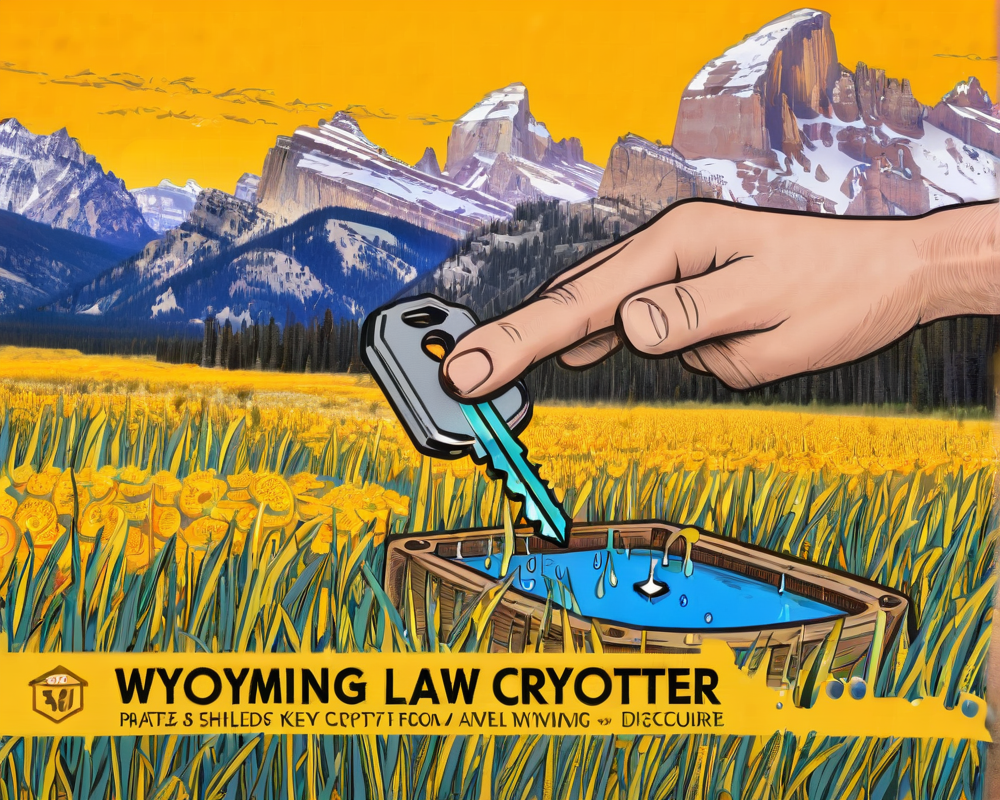Overview of Wyoming’s Landmark Law
In a groundbreaking move for digital asset ownership, Wyoming’s Governor Mark Gordon has signed a bill that prevents the forced disclosure of private keys. You might wonder, what exactly is a private key? Simply put, it’s like the secret password to your digital vault. Now, thanks to this new law, digital asset owners in Wyoming can breathe a little easier, knowing their cryptographic credentials are protected.
Details of the Legislation
The freshly inked law boldly states that no one can be compelled to reveal their private key in any form of legal proceedings—be it civil, criminal, administrative, or legislative. This sounds great, right? But wait, it gets better: to qualify as a “private key,” it has to meet some pretty specific criteria. It must be held by a person, paired with a unique public element, and utilized within a cryptographic algorithm required for transactions. In layman’s terms, if you have a secret code that protects your digital treasures, you get to keep it that way!
Why This Law Matters
This measure is particularly significant as it aligns with how private keys are designed to operate: as secure, encrypted guardians of your digital identity. Think of it as having a high-tech vault where only you hold the combination. Requiring individuals to reveal their private keys—or even worse, allowing them to slip through numerous hands in a courtroom—defeats the very purpose of having such a secure digital identity.
Judicial Challenges and Concerns
It’s clear that courts in the U.S. are still trying to figure out crypto-related legalities, leading to a rise in cases where people are forced to reveal their private keys as part of legal discovery. And as Jon Callas from the Electronic Frontier Foundation astutely noted, it’s more than just the key—they’re after the data. With the courts’ knack for mixing up legal jargon and tech speak, we’ve got to ask: is the judicial system ready to handle the intricacies of cryptocurrency?
Responses from Key Figures
Notable voices have emerged in support of Wyoming’s legislation. Mary Beth Buchanan, a former federal prosecutor, emphasized that courts could insist on knowledge of digital asset ownership, but not the actual private keys. Meanwhile, Senator Cynthia Lummis has echoed the sentiment that privacy is part of Wyoming’s ethos, a “way of life” that underscores the importance of safeguarding individual rights.
Wyoming’s Growing Reputation in Crypto Regulation
What’s fascinating here is Wyoming’s ambition in the crypto realm. Despite being the least populated state, it’s making waves—literally becoming the trendsetter when it comes to cryptocurrency regulations. Back in 2021, they were the first to recognize decentralized autonomous organizations (DAOs) as actual business entities. This move boosts confidence in digital assets and strikes a balance between innovation and regulation.




